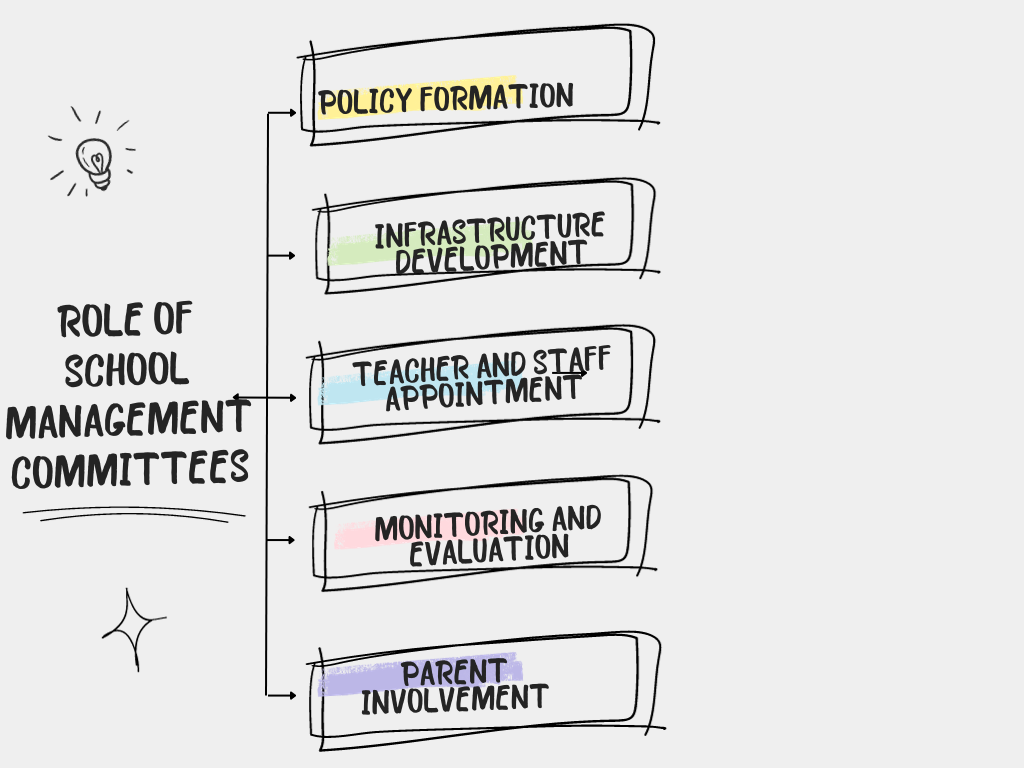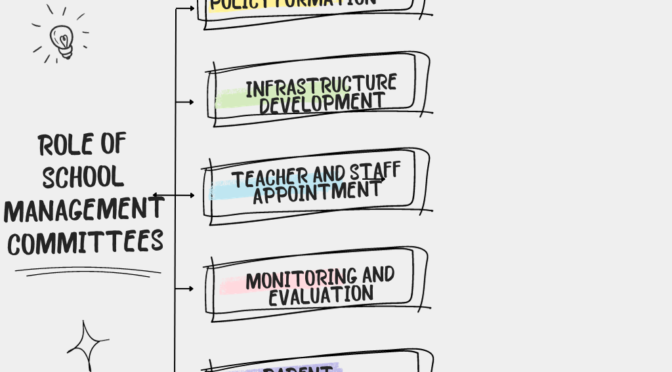School Management Committees (SMCs) play a vital role in the governance and development of schools. These committees are typically composed of representatives from various stakeholders, including parents, teachers, community members, and school administrators.
Here are key roles and responsibilities of School Management Committees:
Policy Formulation: SMCs are involved in the formulation of policies and guidelines for the school. They contribute to decisions related to academic programs, student discipline, and other operational matters.
Budgeting and Financial Oversight: SMCs participate in the budgeting process, ensuring that financial resources are allocated effectively to meet the educational needs of the students. They monitor the school’s financial performance and budget.
Also Read : Management of CCA in School
Infrastructure Development:SMCs are often responsible for overseeing the development and maintenance of school infrastructure. This includes classrooms, laboratories, libraries, and other facilities essential for a conducive learning environment.
Teacher and Staff Appointments:SMCs may be involved in the selection and appointment of teachers and other staff members. They participate in the recruitment process, ensuring that qualified and suitable individuals are hired.
Monitoring and Evaluation:SMCs play a role in monitoring the overall performance of the school. This includes reviewing academic achievements, attendance rates, and the implementation of educational programs.
Parental Involvement: SMCs work to enhance parental involvement in school activities, recognizing the importance of a collaborative effort between parents and the school in the education of children.
Also Visit : Prep with Harshita



Great piece! Press releases are vital for molding media messages and
sharing crucial details. They aid develop links between entities and reporters.
Writing compelling press releases necessitates being clear, tailored with the concerns of
chosen news channels. Given digital advancements, press releases likewise act a important role in web-based PR.
They not only address mainstream news outlets but likewise boost engagement and strengthen a brand’s online
footprint. Adding visuals, such as media, can turn Illinois Press
releases further appealing and distributable. Modifying to the developing media
environment while maintaining core values can significantly increase a press release’s influence.
How do you feel on incorporating multimedia in press releases?
https://backlinkend.co.kr/eba1a4eb8c80eba6ac/
hyperliquid app